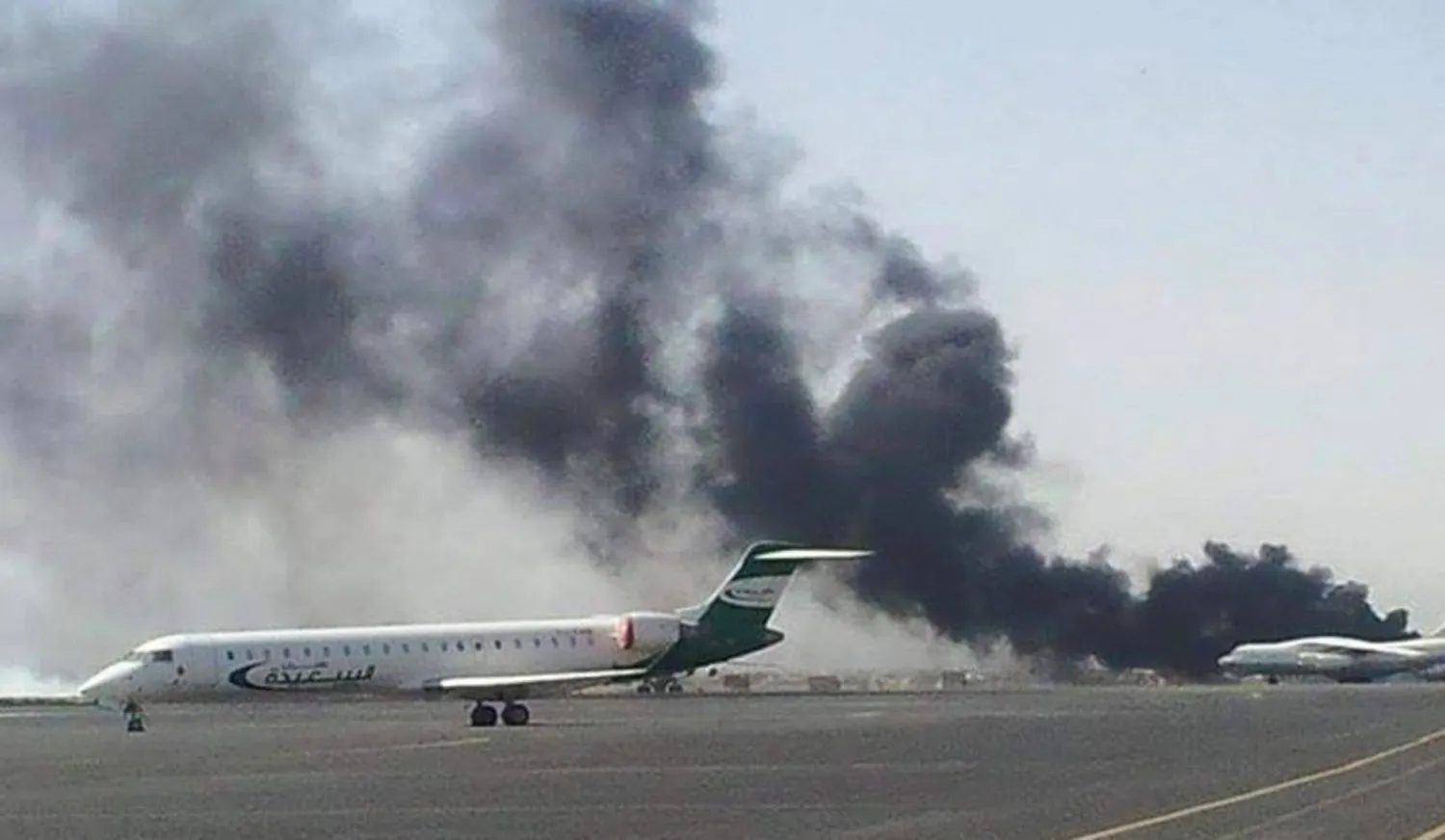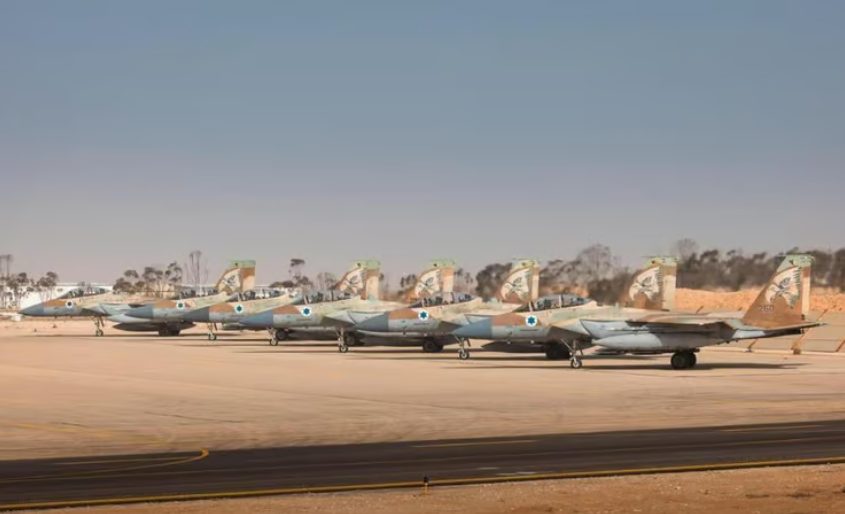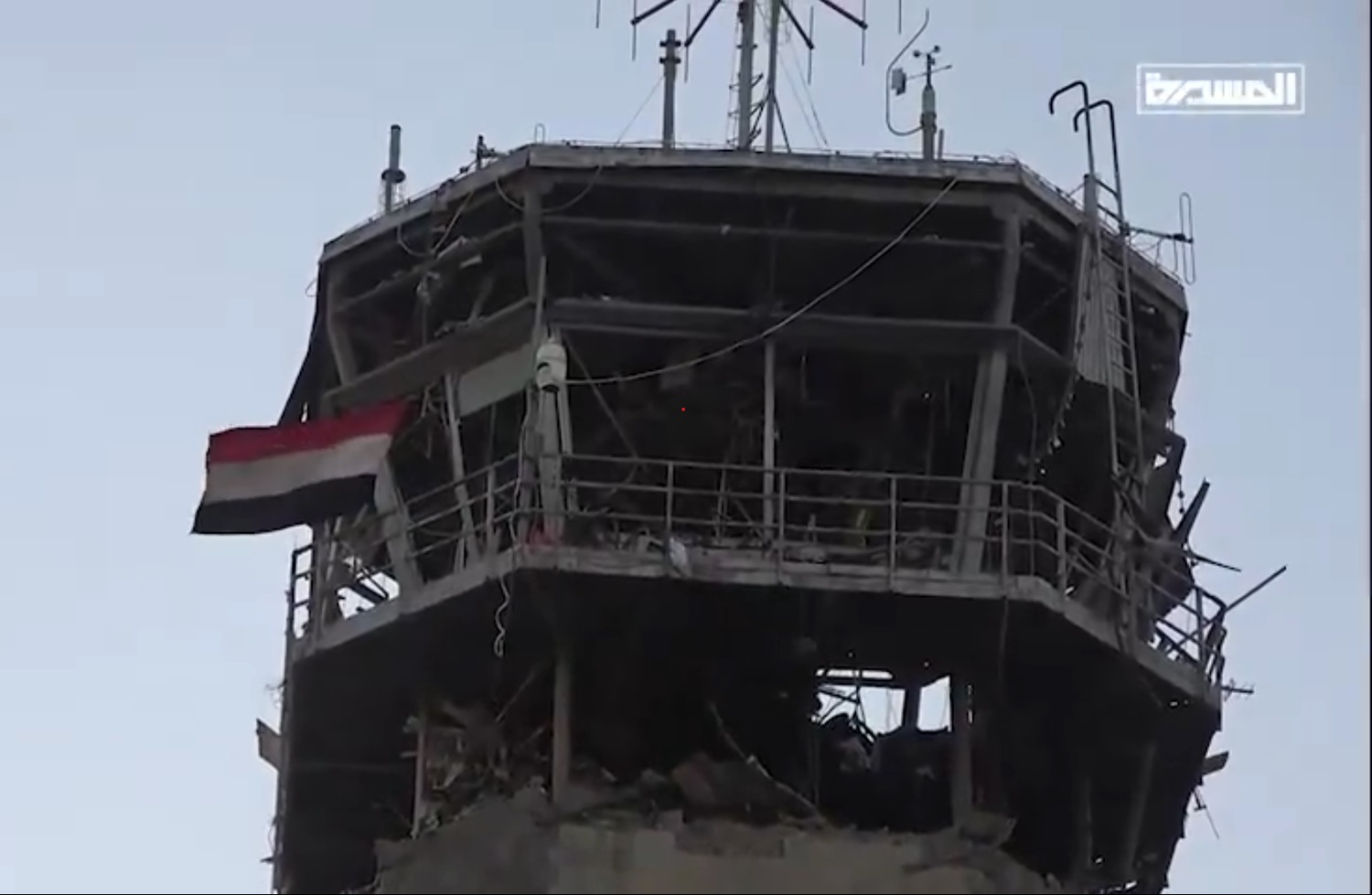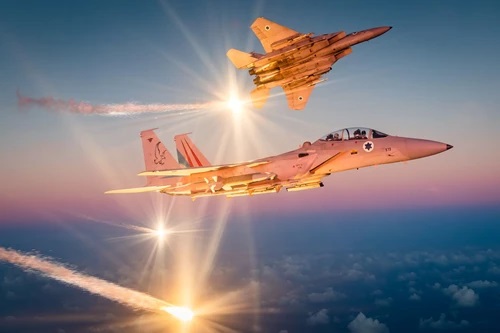Publications
INSS Insight No. 1930, January 1, 2025
Recently, the Houthis have adopted a strategy aimed at exhausting the Israeli population, thereby increasing pressure on the Israeli government to halt its military campaign in the Gaza Strip. Given that Israel’s current approach to countering the Yemeni terrorist organization has been ineffective, it would be prudent to significantly intensify coalition and Israeli efforts against the group’s leadership, as well as its missile production and launch capabilities. Targeting Iran, however, would contradict American interests, risk escalating the region into a broader conflict, and is unlikely to change the Houthis’ operational patterns, as they view themselves as independent and not subordinate to Tehran’s directives.
Since the outbreak of the war in Gaza, the Houthis in Yemen have targeted the State of Israel to pressure it into ending the conflict. The Houthis’ actions have primarily included launching missiles and UAVs toward Israeli territory. Initially targeting the Eilat area, these attacks have now reached the Tel Aviv metropolitan area due to the Houthis’ technological advancements. They have also engaged in maritime attacks on ships passing through the Bab el-Mandeb Strait en route to Israel.
Israel’s response to the Houthis has been restrained, relying on the Israeli Air Force, which has conducted four strikes over the past year against infrastructure sites in Yemen—primarily in the port area of Hudaydah and the capital, Sanaa. During the most recent attack on December 26, Israel also struck Sanaa International Airport. While these operations may have been successful, they have not significantly altered the overall situation. The Houthis continue their attacks on Israel and have effectively rendered the Eilat port completely inoperative.

Recently, the Houthis have escalated their campaign against Israel, launching missiles almost nightly toward the Tel Aviv metropolitan area in an apparent effort to exhaust the population. From the Houthis’ perspective, even if these launches are intercepted, they “get the job done” by putting pressure on the Israeli population. The nighttime alarms in large areas of the Tel Aviv metropolis—even following successful interceptions—triggered by fears of falling debris—contribute to this strain.
Given Israel’s limited success in countering the Houthis and the operational challenges they pose, prominent voices within Israel’s security establishment have begun calling for strikes against Iran as a means of halting launches from Yemen. Recent developments, including the significant weakening of Hezbollah and the effects of Israel’s October 26 attack on Tehran, which severely damaged Iran’s air defense system and missile production capabilities, have made it easier for Israel to act openly against Iran on its own territory.
However, while it may be operationally easier for Israel to target Iran directly, such an attack is unlikely to influence the Houthis’ calculations regarding their ongoing campaign against Israel. The relationship between Iran and the Houthis is complex and cannot be characterized as a patron-client relationship. Although the Houthis rely on Iranian support to build their military capabilities, including the supply of strategic weapons, they maintain independence in decision-making and do not necessarily prioritize Iranian interests. For example, when the US administration pressured Iran to compel the Houthis to cease fire on American ships passing through the Red Sea, nothing changed. Whether the Houthis rejected Tehran’s requests or Iran did not intervene at all, the outcome was the same—Iran’s ability to influence the Houthis’ decision-making is extremely limited.
The Houthis view their actions against Israel as a means of “joining the big league,” both in the eyes of other members of the Iranian-led “Axis of Resistance” and regional states, which increasingly recognize the Houthis as a force to be reckoned with. Furthermore, it is extremely difficult, if not impossible, to create a “deterrence equation” with the Houthis, who have little to lose. Their continued attacks on Israel and the United States enhance their standing among the local population, which endures economic hardships under their rule.

Consequently, it seems that the current Israeli strategy in Yemen—or even a direct strike on Iran—is unlikely to fundamentally alter the existing dynamics in the relationship between Israel and the Houthis. Additionally, an Israeli strike on Iran would likely provoke Iran to retaliate against Israel, potentially escalating the region into a wider conflict—a scenario that neither the current US administration nor the future one is likely to support at this time.
The ability to stop or significantly reduce Houthi activity against Israel will require a shift in the policies of Israel and the US-led coalition in the Red Sea. This approach should be based on several key principles:
- Continuity—Efforts against the Yemeni terrorist organization must be sustained and continuous, regardless of whether the Houthis are actively attacking Israel. The group should always feel under threat and on the defensive (“thinking defense, not offense”). Additionally, Israel should consider increasing its permanent presence in the Red Sea region and/or implementing ongoing strikes in Yemen, rather than settling for sporadic attacks with clearly limited impact.
- Coordination—Israel’s approach in Yemen cannot mirror its strategies in Lebanon or Gaza. Instead, the coalition should adopt new operational patterns to leverage its proximity to Yemen. Coalition activities should be more intensive and target a wide range of Houthi assets. Coordination between Israel and the coalition must be optimized and should focus on identifying “sensitive areas” where strikes could significantly harm the Houthi regime.
- Diverse targets—Leadership and force-building targets should be prioritized. The Houthi leadership should feel a persistent sense of threat from continuous strikes on key leaders, especially members of the tribe led by Abdul-Malik al-Houthi and his brothers, who hold senior leadership roles in Yemen.
- Iran—As already stated, directly attacking Iran is not advisable. However, action should be taken to prevent Iran from providing military support to the Houthis. This could involve targeting Iran’s Quds Force operatives in Yemen, led by Abdul Reza Shahlai, who have played a significant role in building Yemeni military capabilities.
- Intelligence—One of the most significant challenges in countering the Houthis is generating high-quality, real-time intelligence for targeting the regime’s critical assets. Alongside enhancing these capabilities, it is essential to strengthen relationships with the Gulf states, particularly the UAE and Saudi Arabia. Even if these states cannot directly act against the Houthis, their extensive knowledge of the organization could provide crucial intelligence.
It should be emphasized that the Houthi issue is not solely an Israeli challenge; it is a problem for the regional states and the entire international community, which depends on maritime traffic through the Bab el-Mandeb Strait. Given the logistical complexity of operating far from Israel’s borders, reliance on both Israeli efforts and international coalition operations is essential. Reaching an agreement with the incoming Trump administration to significantly increase coalition activity against the Houthis would be a step in the right direction.

Looking ahead, even if the Gaza campaign ends and the Houthis temporarily halt their attacks, the Houthi regime in Yemen must ultimately be overthrown. While this is no small task, Yemen has forces—primarily in the southern part of the country, supported by Saudi Arabia and the UAE—that could take control, despite internal disagreements about unification, should the Houthi regime collapse.
If there is a lesson the Houthis have learned from the current conflict, it is that the military power they built with Iran’s help can be leveraged for political concessions from regional and international players. Therefore, even if rocket fire toward Israel temporarily stops, it is likely to resume for other reasons, such as Houthi–Saudi relations or Israeli actions against other “Axis” elements. Moreover, the operational knowledge the Houthis have gained in their campaign against Israel is being shared with other Iranian proxies in the Middle East, such as the Shiite militias in Iraq. This underscores the urgency of overthrowing the Houthi regime. Achieving this goal would deliver a severe blow to Iran’s force-building efforts and weaken its strategic foothold near the straits leading to the Horn of Africa.
Bottom Line
The actions taken so far have been insufficient to change the reality regarding the Houthis. The Yemeni arena has not been a top priority for Israel, and this has affected Israel’s ability to effectively address this threat. The time has come to fundamentally alter this approach, as there may be no other option.
The Houthi challenge requires Israel to acknowledge that the distance and operational difficulties mean there is no “quick fix” to the campaign against the Houthis. Instead, the response must be integrated and not left to Israel alone. Alongside building robust intelligence capabilities and increasing its presence in the straits region to enable sustained operations against the organization, Israel must press the US-led coalition to significantly escalate strikes against senior Houthi leadership and their weapons production infrastructure. These efforts should be driven by intelligence, with substantial contributions from the Gulf states.
An effective campaign against the Houthis will also serve Israel’s bilateral interests, particularly strengthening ties with the UAE, Bahrain, and Saudi Arabia, all of which view the Houthis as a significant threat. Additionally, it will enable the reopening of the straits to maritime traffic to Israel—a step that will significantly contribute to Egypt’s economic recovery as well.



